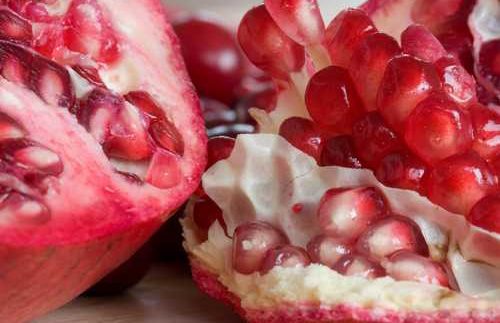The Cairo Guide to Seasonal Food in Egypt

Melissa Howell
Thanks to its well-nourished soil from the Nile, Egypt enjoys a plethora of locally
grown produce. The benefits of eating locally grown food are no secret: the
fresher your produce; the higher the nutritional value and the better the food
tastes. Eating fruits and vegetables grown close to home also supports the
local economy and is a great way to keep your own food costs low.
As seasons change, so does the selection of locally sourced produce; therefore,
eating local and in season often go hand in hand. Although we surely will miss
the juicy mangoes synonymous with summers in Cairo, autumn is now here and with the new
season comes sensational produce. Here are some of the delicious fruits
and vegetables that we Cairenes can enjoy throughout the autumn harvest.
Eshta: Although summer
is admittedly the juiciest season for fruits, the autumnal months can be just
as sweet. Resembling an artichoke, eshta doesn’t initially seem worthy of its
name with its bumpy green exterior. However, slicing into this fruit reveals a silky
white centre, of soft and sweet fruit. Towards the middle of the fruit, eshta
is creamier in texture and at the rind it is similar to a soft pear with some
graininess. The best way to eat this fruit is just to spoon it out of its skin,
but beware of the many large black seeds that can be a choking hazard.
Pomegranate: This fruit is
revered in many cultures and has been for ages.
Featured in Indian Ayurvedic medicine, European art and a number of
religious texts; this round, ruby fruit is incredibly beneficial for your
health. Loaded with vitamins and fibre (if the seeds are eaten), pomegranates are
also known for their high antioxidant capacity. To get the most out of this
wonder food, split the fruit open and eat the arils, seed and all. The fruit
tends to be a little tart at the beginning of its season; so look forward to
this fruit getting sweeter throughout the next few months. Although it is commonly consumed here in Egypt
as juice; try sprinkling the arils on salads or yogurt, or use the juice as a
glaze on chicken or duck.
Spinach: Now that the
weather is starting to cool down a bit, Egypt’s leafy greens are no longer
the wilted tragedy induced by the summer heat. Lettuces have been looking perkier by the day at produce stands across Cairo, and more than a
few produce markets have been excitedly advertising their bright green spinach.
A high source of vitamins A and K as well as iron, spinach is one of our
favourite cold weather vegetables. We love it in salads, soups and lightly
steamed. If you find the taste of spinach to be unpalatable, try squeezing some
lemon on top or adding a dash of vinegar. There’s always the option of sautéing
spinach in a tablespoon or two of butter; but just don’t boil it unless you’re
willing to forfeit half of its nutritional value.
Root Vegetables: Autumn is the
perfect time to celebrate root vegetables, and carrots, beets and sweet
potatoes are among our favourites. Carrots are packed with beta-carotene, rich
in vitamins and potassium, and are great for your eyes and skin as well as for
lowering cholesterol levels. A popular juice
ingredient, carrot is often blended with orange for a delicious vitamin C
cocktail, though we also love carrots in stews or eaten raw. Also high in
beta-carotene are sweet potatoes, a great source of fibre and vitamin A
too. Our favourite way to enjoy these
vitamin-packed sweet treats is from one of the many street carts around Cairo. We also love sweet
potatoes (and all root vegetables) the way that we love our beets: roasted in the
oven with a drizzle of olive oil. This method makes vegetables soft and sweet
without losing their nutritional value.
The next time you’re at the green market; make sure to throw a few of
these fruits and vegetables in your bag and have a culinary celebration of the
cooler weather!
recommended
 Arts & Culture
Arts & Culture
The Coptic Museum: The History of Egypt to the Tunes of Psalms of David
arts & culture cairo museums +4 Health & Fitness
Health & Fitness
Egyptians in the 2024 Summer Olympics
Egyptians in the Olympics Olympics +1 City Life
City Life
Weekend Guide: Bazar by Sasson, Memo, The Cadillacs, Heya Bazaar, Dou, Nesma Herky & More
Concerts The Weekend Guide +2 Arts & Culture
Arts & Culture

